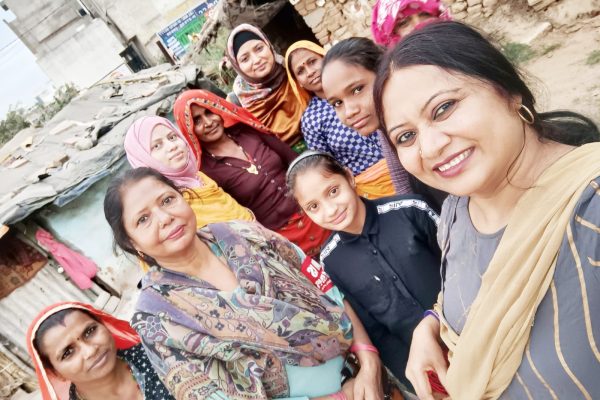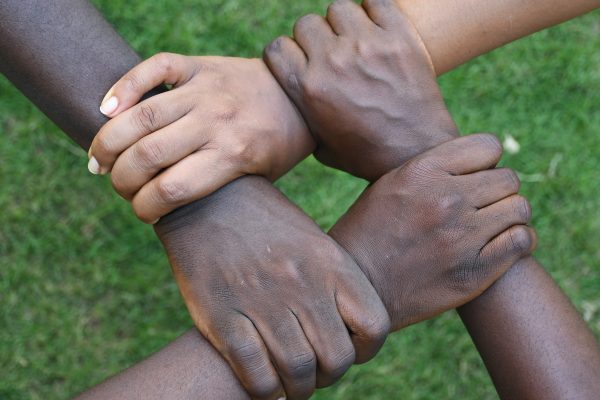Imagine a world with freedom in accessing healthcare, a world where healthy communities thrive. A world where authorities work towards providing accessible healthcare services for all. A healthier planet for all. That would be the ideal – but we are, unfortunately far from that reality.
World Health Day: a global health awareness campaign
Each year on 7th April, the World Health Organisation (WHO) celebrates World Health Day – a global health awareness campaign.
Founded on 7th April 1948, the day also marks the organisation’s establishment. In honour of this, World Health Day aims to draw worldwide attention to the subject of global health.
In many parts of the world, people do not have immediate access to healthcare. Approximately 680 million people live in extreme poverty, obliged to make the difficult choice of using the little money they have to sustain themselves and their families or spending on healthcare.
Countless issues arise from the accessibility of healthcare and its impact on global communities, World Health Day aims to bring awareness to these issues around the world.
Each year, the focus differs with central themes based on current priority health concerns. Communities can participate in international, regional and local events organised by the WHO. Acknowledged by various governments and non-governmental organisations with interests in public health issues, the day is an opportunity to promote awareness of various health topics.
This year, the World Health Organisation will mark its 75th anniversary by merging this celebration with World Health Day 2023. Encompassing the globality of the need and accessibility of healthcare, the theme this year is Health for All.
How does World Health Day contribute towards positive change?
Over the past several decades, every year, these days, and the subsequent months, have focused on major areas of need such as Diabetes, use of antimicrobials, ageing, food safety, and mental health, amongst other concerning health conditions. This in turn raises the profile of these health conditions globally, calling out for the public to make them more aware and responsible for their health. Consequently, this also helps to bring and influence change in the way healthcare is delivered and managed.
For example, in 2013, the focus on blood pressure brought to light the dangers of this silent killer. By creating awareness around the effects of high blood pressure, such as heart disease, stroke, kidney failure, vision loss and premature death, WHO campaigns were successful in enabling authorities across the world to make blood pressure measurement affordable for all.
In 2017, World Health Day focussed on depression. Steps were taken to educate the public about the impact of depression on a person’s ability to function and carry on with daily activities, affecting not only their own health but also their impact on society and the economy. The aim was to enhance people’s understanding and remove the stigma attached to it so that more people would seek help.
‘Health for All’
Part of the work that Who is Hussain teams undertake globally, includes promoting and supporting good quality healthcare for all, especially for those who cannot afford it. With teams in over 60 locations, volunteers work diligently on many healthcare projects.
In August 2021, Who is Hussain teams held medical camps in Dar Es Salaam, Mbeya, Johannesburg and Bangalore including free medical checkups for Hepatitis, Malaria, Haemophilus Influenzae Type B, Syphilis and Hypertension.
In the rural area of Mwandege, the team in Dar es Salaam provided individuals in the local community with mobility equipment, such as crutches, support canes and wheelchairs, which may have otherwise been expensive to purchase. Additionally, more than 300 health insurance cards were distributed allowing the village’s residents to have access to free healthcare. With those with disabilities often being marginalised, and left with inadequate care and help, the team stepped in to provide more than 65 children at the Ukombozi School with National Health Insurance cars, enabling them to access medical treatment and healthcare at no extra cost.
The recently relaunched #GIVE campaign, by Who is Hussain, seeks to provide children suffering from congenital heart defects, with a renewed, and healthier life. The campaign, running in its seventh year, raises funds to provide life-saving heart surgeries for children most in need in Iraq, India and Yemen – and for those whose families are unable to afford treatment. With more than 50 children already treated, this year the campaign aims to help more children, giving them an equal advantage in life. To support the campaign, click here.
This year WHO focuses on achieving Health for All, providing equal access to healthcare, and a world with no major disparity in life expectancy rates between regions.
With teams operating in 90 cities around the world, Who is Hussain is a movement that operates on the principles that Hussain ibn Ali stood for i.e social justice – with health for all being a major component of it. From assembling and distributing first aid kits, facilitating regular blood donations globally, and raising awareness of critical and public health conditions pertaining to local communities, Who is Hussain teams worldwide are dedicated to ensuring that good healthcare is accessible for all.
Despite the many decades of world health day campaigns, there still seems to be a disparity in the healthcare systems on a local, national and international level. These are often tied in with the social security and welfare systems of nations. With the aim, ultimately, to ensure that everyone is given equal access to healthcare, the question arises, then, as to how we – as a global community – can help bring about positive change in the healthcare system, enabling equal access to healthcare for all?




